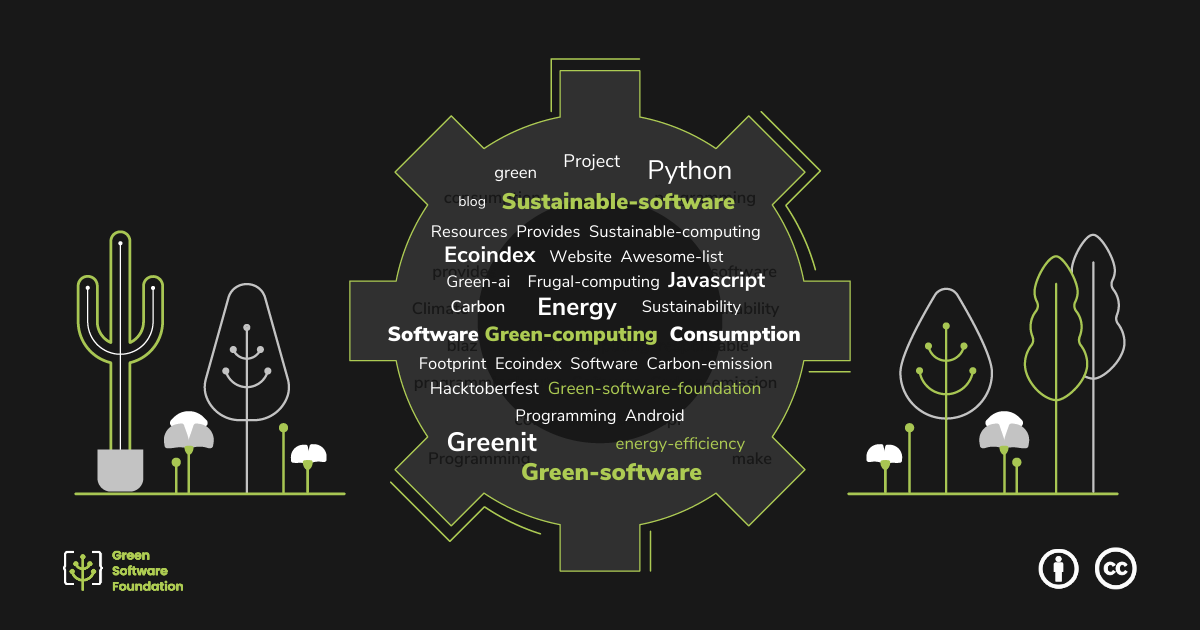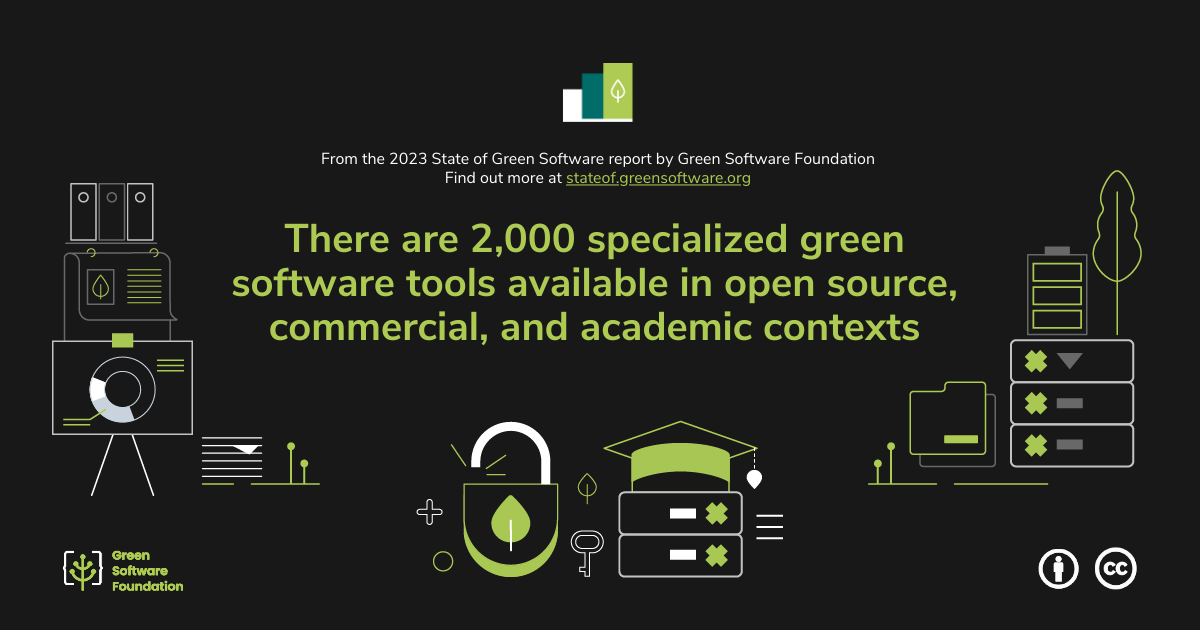If we define specialist green software tools as those that have an explicit environmental dimension in their name, topic, or description on GitHub, there are approximately 800-1,200 green software tools publicly available on the platform. By combining the tools in GitHub repositories with those found in academic indexes and general web searchers, the Green Software Foundation (GSF) estimates that there are 2,000 specialized green software tools currently available.
To arrive at the 800-1,200 public GitHub repository baseline, the GSF took the following steps:
- Identified well-known specialist green software tools from lists curated by domain experts, including the Green Software Foundation, The Green Web Foundation, Open Sustainable Technologies, Collectif Conception Numérique Responsable, and Open Sustainable Technologies
- Compiled a list of all the GitHub topics (keywords) tagged in the curated specialist green software tools and ran searches against each of them, compiling all the keywords in the search results. This involved some data cleaning to exclude irrelevant results where the keyword was too broad, like “sustainability”
- Created a word frequency analysis across all the relevant repositories

- Searched for the most frequently used green software keywords above; search revealed around 800 results
The total number depends on where the boundary is drawn; some repositories are simply forks (clones) or unusable works in progress, while others are one-off code for academic papers. The foundation estimates that a more inclusive boundary–adding more obscure keywords and including one-off code not promoted as a tool–could add up to 50% more hits; in the 1,200 upper limits. Regardless of the boundaries set, if we define specialized software tools as tools that explicitly mention environmental concerns or goals, it is clear that the upper limit will be, at most, the low thousands.
Outside of Github, there are tools explicitly focused on the environmental impacts of software, including Green Spector, or ones offered by cloud providers such as Google, Amazon, and Microsoft on a commercial basis.
Similarly, tooling described in academic literature focused on the environmental impacts of software is unique, designed to achieve proof of concept or empirical results for specific research projects, rather than as reusable tools. While the academic literature mentions these tools, there is no indication of their gaining traction beyond isolated academic studies. To date, the foundation has identified 600-1,000 such tools.
Even with 86 million new Github repositories in 2022 alone, adjusting the proposed 2,000 figure won’t make a big difference, as the green software tooling ecosystem is still in its early stages compared to the larger software ecosystem.
